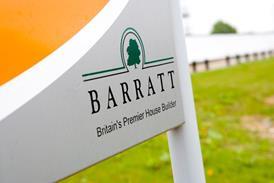Land Securities follows British Land and Hammerson in unprecedented industry equity rush
History was made yesterday when Land Securities launched the first deeply discounted rights issue in its 65-year existence.
The UK’s largest listed property company aims to raise £750m of equity to repair its balance sheet.
It takes the amount of equity raised by the big REITs from rights issues in the last two weeks to £2bn.
Hammerson raised £584m and British Land £740m last week. Liberty International is expected next week to become the fourth, and one of the last to launch a rights issue.
All four companies need the new equity to reduce their debt and avoid breaching banking covenants in the face of falling property values.
Although two smaller REITs, Segro and Brixton, announced this week that they were considering raising new equity, analysts warned that the rights issue window was all but shut after LandSecs. Institutional investors have no money left to recapitalise property companies, they said.
As Property Week went to press on Wednesday, the pricing of the LandSecs issue had not been finalised. However, shares were expected to be offered to shareholders on the basis of five new ones for every eight held at a price of around 265p each. A year ago LandSecs’ shares were trading at more than 1500p.
Any shares that are not bought by shareholders will be taken up by the underwriters: Citi, UBS and JP Morgan Cazenove. LandSecs, led by chief executive Francis Salway, had hoped to avoid a rights issue through a combination of asset sales and a possible cut to the dividend. It has sold more than £3bn of property since April 2007, as well as its Trillium outsourcing division, and is negotiating the sale of a one-third stake in Birmingham’s Bullring shopping centre.
But Nomura analyst Mike Prew said the sales only gave LandSecs breathing space of between three and six months.
‘The portfolio value is now an estimated 15% away from its 65% loan-to-value bond covenant,’ he estimated.
LandSecs has safely navigated through the storms of previous recessions but the current one is so severe and debt is so scarce that a deeply discounted rights issue was the only option.



























No comments yet